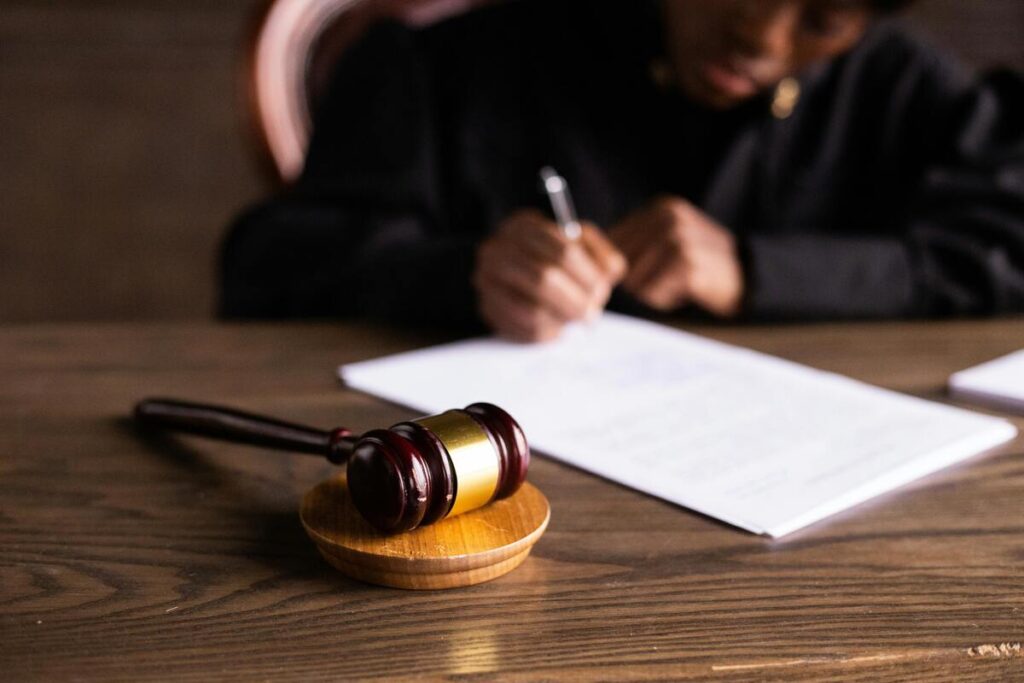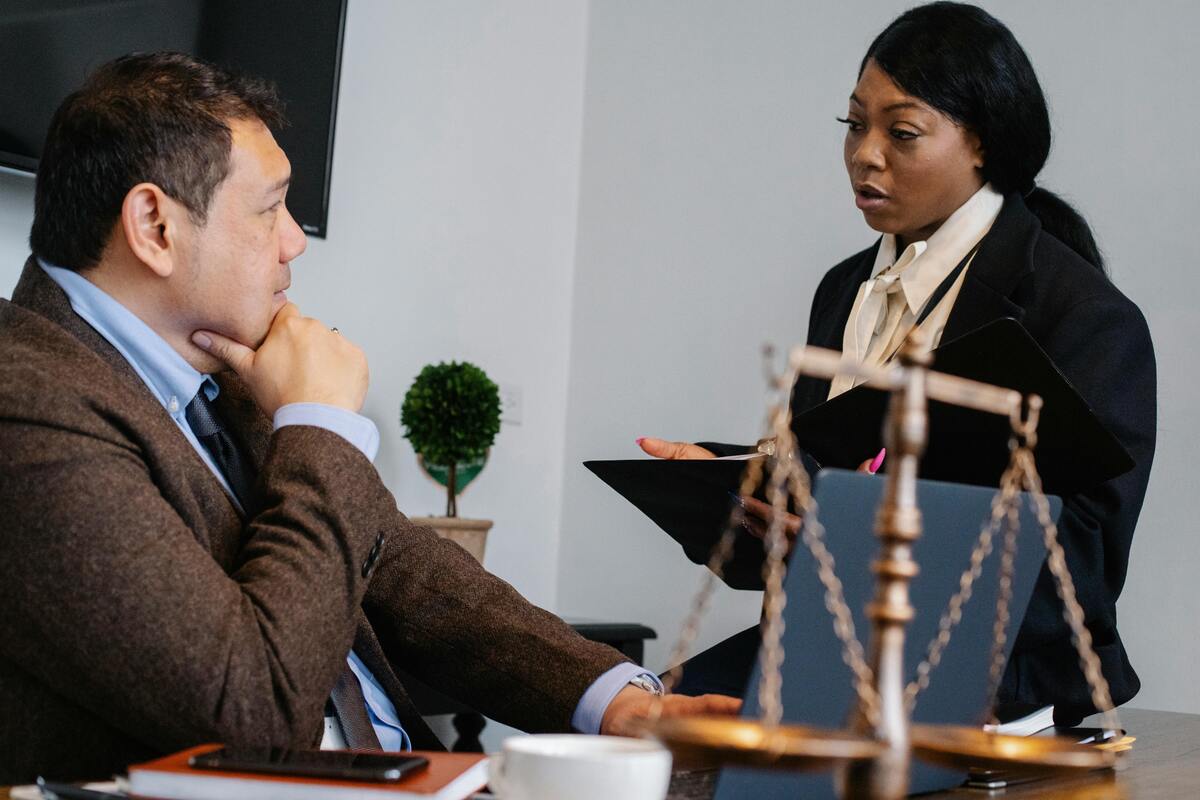What Role Does Forensic Psychology Play In A Sexual Assault Case?
Forensic psychologists encounter an extensive variety of cases and personalities throughout their careers. These professionals may work with individuals suffering from depression and anxiety due to traumatic events or those who have sustained brain injuries from incidents like domestic violence. They may also assess people who have committed crimes such as theft for basic survival, or even murder, whether it was premeditated or driven by intense emotional reactions. Additionally, forensic psychologists often work with juveniles who, in their pursuit of peer acceptance, find themselves entangled in legal troubles.
As awareness surrounding the widespread occurrence of sexual violence has grown in recent years, it is crucial to explore the significant role forensic psychology can play in handling such cases. This field offers essential insights that aid in understanding the psychological impact on victims, evaluating offenders, and assisting the legal system in addressing these sensitive and complex issues.

Forensics vs. Forensic Psychology: Clearing the Confusion
Let’s first clarify the distinction between forensics, often sensationalized in popular media, and forensic psychology. While both fields contribute to the legal system, they are not the same. It’s important to recognize that forensics typically refers to scientific methods used to investigate crimes, whereas forensic psychology focuses on understanding the psychological aspects related to criminal behavior and legal processes.
References to forensics in TV shows often highlight the intersection of science and crime detection, such as lab testing, which falls under the umbrella of forensic science. In contrast, forensic psychology delves into how psychological principles apply to legal matters. This field focuses on understanding how mental health and behavioral factors influence legal situations and criminal cases.
In a sexual assault case, a forensic psychologist won’t be involved in collecting or analyzing physical evidence from the crime scene. Instead, their role might involve assessing victims, witnesses, or the accused. They may also perform other critical functions, which we will explore in more detail below.

What Are the Roles of a Forensic Psychologist in a Sexual Assault Case?
Once a sexual assault allegation is made, the role of a forensic psychologist can vary based on the specific needs and requests of the case. Their responsibilities might include evaluating the psychological state of the victims and witnesses, assessing the mental health of the alleged perpetrator, and providing expert testimony or consultations. The psychologist’s involvement is tailored to the requirements of the case and the requests from legal professionals, aiming to support the legal process through psychological insights.
1. Evaluator
A forensic psychologist may be engaged to assess either the alleged victim or the accused in a sexual assault case. This evaluation can cover various areas, including:
- Personality and Coping Styles: Understanding how the individual’s personality traits and coping mechanisms impact their behavior and response.
- Emotional Responses: Evaluating the emotional reactions and mental state of those involved.
- Assessment of Fabrication and Malingering: Determining whether there is any evidence of deceit or exaggeration of symptoms.
- Intellectual Testing: Measuring cognitive abilities to understand the individual’s intellectual functioning.
- Memory Evaluation: Assessing memory and recall to determine the reliability of recollections related to the case.
The interviewer must proceed with great care, utilizing open-ended questions and being mindful of the interviewee’s suggestibility. Law enforcement often employs the cognitive interviewing technique, which aims to improve the accuracy of information retrieval from witnesses or suspects about the alleged incident, while minimizing the risk of inadvertently introducing or influencing false information. This method focuses on enhancing memory recall without leading or pressuring the individual.
Psychologists and counselors often use open-ended questioning techniques to ensure that the interviewee’s responses are not influenced or tainted by the interview questions or any other information provided by the interviewer. It is crucial for the interviewer to maintain impartiality throughout the process to avoid cognitive biases such as the “halo effect,” where all interviewees are judged as either entirely positive or negative, and “confirmatory bias,” where the interviewer seeks evidence that supports their pre-existing beliefs or biases about the case.
2. Therapist
In a sexual assault case, a forensic psychologist or licensed professional counselor may be brought in as a therapist to help address the emotional impact experienced by the alleged victim or the accused. The term “alleged” is crucial here, as no legal judgment has been made yet. Maintaining objectivity is essential, ensuring that the therapist’s insights and support remain unbiased and unaffected by the case’s ongoing developments.
3. Jury Consultant
In the event that a sexual assault case proceeds to trial, a forensic psychologist or licensed professional counselor may take on the role of a jury consultant. Their task would be to help in selecting an impartial jury by analyzing potential jurors’ biases and ensuring a fair and unbiased panel. This role is crucial in maintaining the integrity of the trial process and supporting a just outcome.
In forensic psychology, maintaining objectivity is crucial, ensuring that jury selection is not influenced by attempts to favor one side. For example, in the popular television show “Bull,” the forensic psychologist is depicted as being hired to profile potential jurors and recommend those who might lean toward the interests of the hiring party.
This approach is not entirely objective because the jury consultant profiles potential jurors to create a panel that may respond in a manner that aligns with the client’s goals. By tailoring the jury selection to favor a particular side, it risks compromising the impartiality of the jury, which is essential for a fair trial. The aim should be to ensure that all jurors are unbiased and able to judge the case based solely on the evidence presented.
4. Fact Witness
A forensic psychologist or licensed professional counselor may be called upon as a fact witness in court. In this role, they are recognized by the court as an expert in their field, qualified to provide important testimony and answer crucial questions related to the case.
Below are examples of the types of questions a fact witness might address, along with insightful responses provided by a Chair of the Forensic Psychology Department:
Question: Why might a victim delay reporting a sexual assault?
Answer: “The delay in reporting a sexual assault can stem from various factors, including personal circumstances and the specifics of the incident. A forensic psychologist or counselor might investigate these delays by asking questions such as ‘What prompted you to come forward now?’ This helps to understand why someone might wait months or even years to report. For example, a victim might explain, ‘I was afraid to speak out’ or ‘I feared retaliation from the perpetrator,’ while others might find it difficult to provide a clear reason, responding with ‘I’m not sure.’ Each response offers insights into the reasons behind the delay, though it’s essential to acknowledge that reporting can be a very challenging step for many individuals.”
Question: What factors might affect a victim’s ability to recall the details of an incident?
Answer: “Several factors can influence a victim’s ability to remember the specifics of an incident. Victims may experience a range of memory clarity, from detailed recollections to vague or fragmented memories. Intense emotional distress and a neurobiological response can sometimes impair a victim’s ability to recall key details. On the other hand, a forensic psychologist might also consider it atypical if a victim provides an unusually detailed account of the incident, as this could raise questions about the accuracy of the memories.”
Question: Is it typical for a victim to disclose a sexual assault to someone other than law enforcement?
Answer: “Yes, it is quite common for a victim to first share their experience with someone other than law enforcement. They might confide in a trusted friend or family member or seek support from a mental health professional. Warning signs that a victim may have experienced sexual assault can include increased isolation, depression, anxiety, changes in appetite, substance abuse, difficulties at school or work, or even thoughts of self-harm.”

The Crucial Role of Objectivity
It’s a point that cannot be emphasized enough: a forensic psychologist, regardless of their role, must maintain strict impartiality. They must avoid being influenced by media or online sources and refrain from turning a single piece of information into a broader opinion. Objectivity is essential for ensuring that their assessments and testimonies remain unbiased and reliable.
How Does a Forensic Psychologist Learn to Maintain Objectivity?
In programs like The Chicago School’s forensic psychology curriculum, students are initially guided to identify their own biases.
According to the Chair of the Forensic Psychology Department, “One of the first things I emphasize with new students is recognizing that they might not be as objective as they think. Students often assume they are fully impartial, but that’s not always the case. The crucial first step is to uncover their personal biases and then either address these biases or determine which populations might be unsuitable for them to work with. For instance, someone with personal trauma might find it challenging to remain objective when working with sexual offenders.”

Evaluating the Credibility of an Alleged Victim or Perpetrator
A forensic psychologist cannot solely depend on observations, such as during a victim’s or perpetrator’s testimony, to assess credibility. Many individuals might appear convincing while being deceitful, while others who are genuinely honest might seem upset or nervous when testifying. Therefore, a thorough evaluation involves more than just observing behavior; it requires a comprehensive analysis of various factors to accurately determine credibility.
Instead, a forensic psychologist must conduct a detailed psychological evaluation and review all relevant case information. However, the term “credibility” may not be used in this context; rather, the psychologist focuses on assessing the reliability and accuracy of the information provided, considering various factors to form a comprehensive understanding of the individual’s testimony.
“We might be asked to evaluate credibility, but what does ‘credibility’ really mean?” explains the Chair of the Forensic Psychology Department. “In my view, the evaluation provides relevant information, and from that, a forensic psychologist determines whether there is sufficient evidence to form an expert opinion.”
Conclusion
Forensic psychology plays a pivotal role in sexual assault cases, offering insights that are crucial for both understanding and navigating these complex situations. Forensic psychologists provide a range of services, including evaluating victims, witnesses, and suspects, assessing emotional responses, and offering expert testimony. They help ensure that the psychological aspects of a case are thoroughly understood, which is essential for a fair and just legal process. The distinction between forensic psychology and forensic science is significant; while forensic science focuses on physical evidence, forensic psychology delves into the mental and emotional elements of criminal behavior. Maintaining objectivity and impartiality is crucial in this field to ensure that psychological assessments and testimonies are reliable and unbiased.
Whether serving as evaluators, therapists, jury consultants, or fact witnesses, forensic psychologists contribute significantly to the legal system. They help clarify psychological factors that impact cases and support the justice system in making informed decisions. The role of a forensic psychologist is not just about providing expert opinions but also about ensuring that the process is conducted fairly and professionally.
If you are involved in a case where forensic psychological expertise is needed, consider reaching out to professionals who specialize in this field. FC PsychExperts is dedicated to delivering professional psychological services integral to the justice system. From comprehensive evaluations to expert testimony, our forensic psychologists offer reliable and accurate psychological insights to support criminal and civil cases. Let us help you uphold justice through the science of psychology.
FAQs
What is the role of a forensic psychologist in a sexual assault case?
Forensic psychologists assess the psychological state of victims, witnesses, and suspects. They provide evaluations that cover personality traits, emotional responses, and memory accuracy, and offer expert testimony to support the legal process.
How does forensic psychology differ from forensic science?
Forensic science involves physical evidence collection and analysis, such as lab testing, while forensic psychology focuses on understanding the psychological aspects of criminal behavior and legal matters.
What is the importance of objectivity in forensic psychology?
A: Objectivity is crucial to ensure that psychological evaluations and testimonies are unbiased and reliable. Forensic psychologists must avoid personal biases and focus on providing impartial insights.
Can a forensic psychologist act as a therapist in a sexual assault case?
Yes, a forensic psychologist or licensed counselor may provide therapy to help address the emotional impact of the assault on the victim or accused, while maintaining objectivity.
What is a jury consultant in forensic psychology?
A jury consultant helps select an impartial jury by analyzing potential jurors’ biases. They ensure that the jury remains fair and unbiased throughout the trial process.

